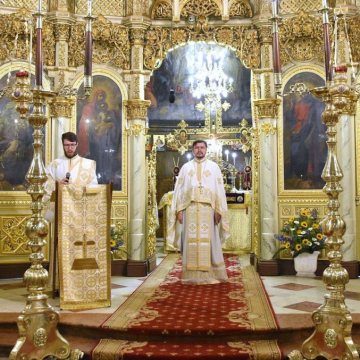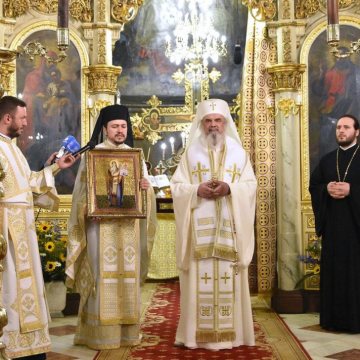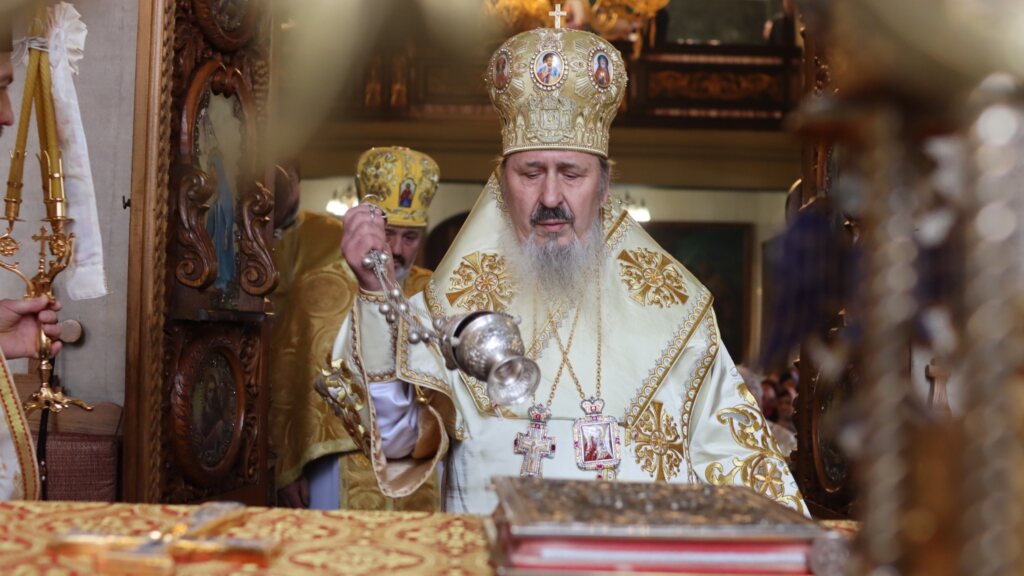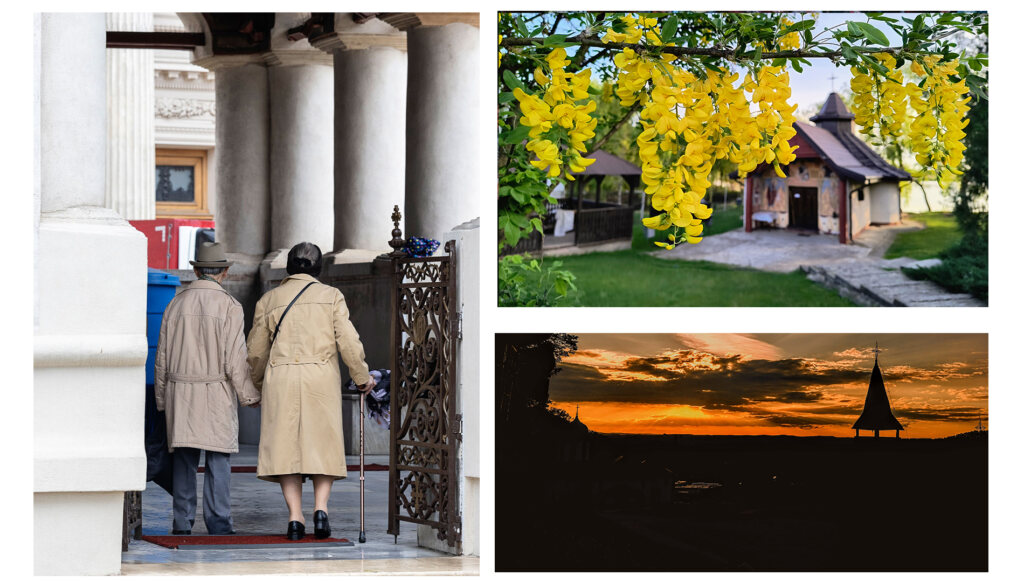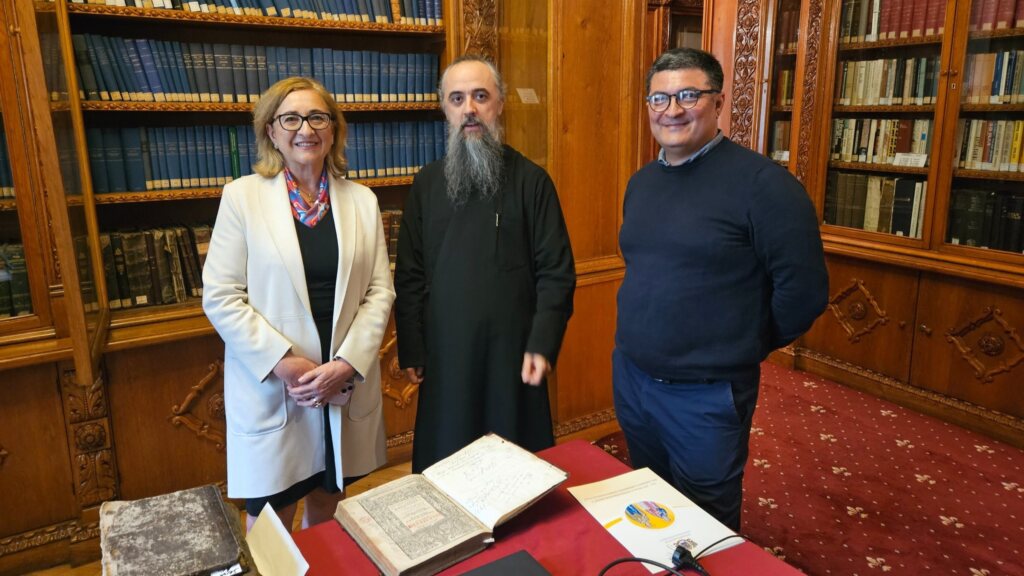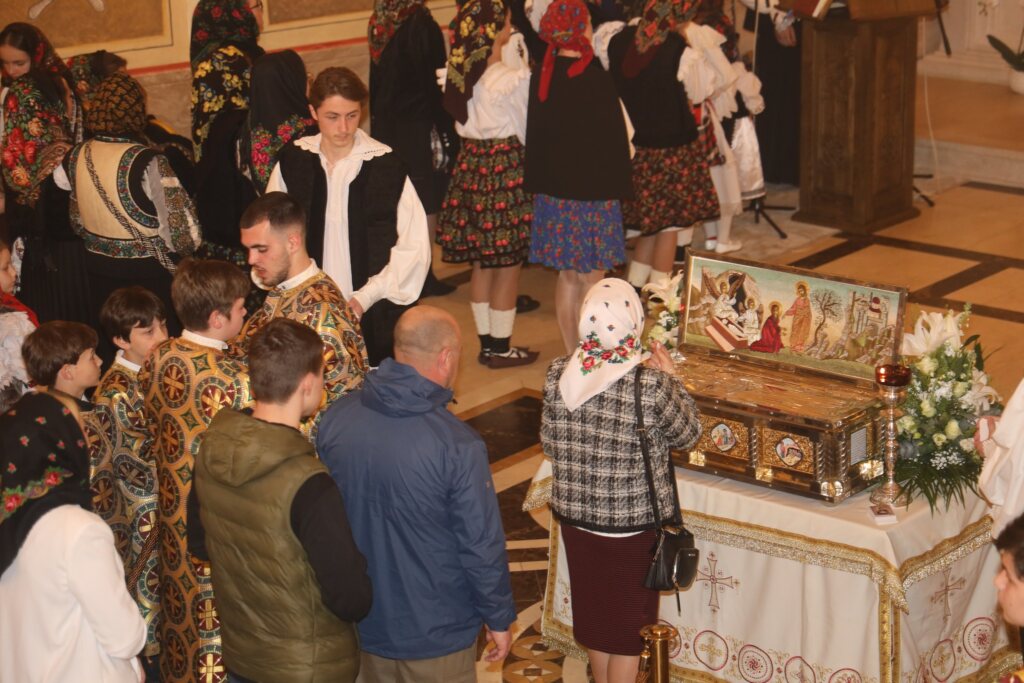‘Existence and health are not our own right, they are gifts,’ Patriarch Daniel stressed in his Sunday Gospel delivered at St Spyridon Cathedral in Bucharest in which he reflected on the healing of the blind man.
He said we must keep and cultivate these gifts, and that we should thank God and our neighbours for helping us to cultivate them.
Give thanks to God for all gifts
Offering his reflections on the Sunday of the Blind Man, His Beatitude Patriarch Daniel pointed to the importance of gratitude.
‘Man’s normal state is that of thankfulness to God,’ the Patriarch said May 13 offering the example of gratitude of the healed blind man from the gospel.
‘The Church’s highest activity is called the Holy Thanksgiving or the Holy Eucharist.’
‘During the Eucharistic Divine Liturgy we thank God for the existence of the Universe and the earth, for our existence, for being able to breathe God’s air, to use the God-created water.’
The healed blind man is a teacher of faith
The Patriarch noted that Christ transformed the blind man into a ‘teacher of faith’ who witnessed to His healing power and divinity.
‘That is why he was born blind, to be healed and to profess that Jesus is the Son of God.’
‘Today’s Gospel shows us that the Saviour Jesus Christ transforms this man born blind into His confessor, into a teacher of faith who professes he was healed by the divine power and believes in Him as the true Messiah, the Son of God,’ the Patriarch added.
His Beatitude pointed to the blind man’s patience, humility and faith.
‘This blind man had faith in God’s help. He did not ask to be healed because he did not know who was passing by, but he felt the mercy of Jesus, who, on his own initiative, healed him because He saw his strong belief, his humility and his patience.’
The secularised man lives in spiritual indifference
The Patriarch noted that the circumstances two thousand years ago are still actual since unbelief has many forms of manifestation.
‘Unbelief, as spiritual disability or infirmity to recognise that the world and man were created by God,’ the Patriarch noted, ‘is manifested as atheism, which is a total rejection of God’s existence.’
‘Often atheism is accompanied by hostility towards religion in general.’
The Patriarch of the Romanian Orthodox Church cautioned that the lack of faith can also be manifested as ‘nihilism or indifference towards the values of faith’ or as secularisation.
The patriarch defined secularisation as ‘spiritual negligence or decline’ manifested through the absence of prayer.
He said that the secularised man ‘lives in spiritual negligence, in oblivion of God, lacking communication with God.’
‘The secularised man believes that God exists somewhere in Heaven, that at the end of the world there might be some kind of a judgement, but until then he continues living in spiritual indifference.’
‘Even when he is a believer, he is not a practitioner. He does not go to church, does not pray in the morning or in the evening. For him prayer is not a win, but a lost time.’
A man who prays becomes enriched with love
As opposed to the secularised man, Patriarch Daniel spoke about the man who prays saying that he becomes enriched with the love of God and his neighbour.
Those who do not pray ‘alienate themselves from God, they lack the love for God and their neighbours.’
Pointing to the ‘humble and merciful love’, the patriarch said ‘it is not acquired by the simple will, but by the connection with the humble and merciful God, and this connection is called prayer.’
The Patriarch of Romania ended his sermon by urging everyone to learn from the blind man ‘how to see God working in our lives, to confess Him as the Son of the living God, Who created us out of holy and merciful love, and to help the poor and the sick.’
Photography courtesy of Mircea Popa/ZL

